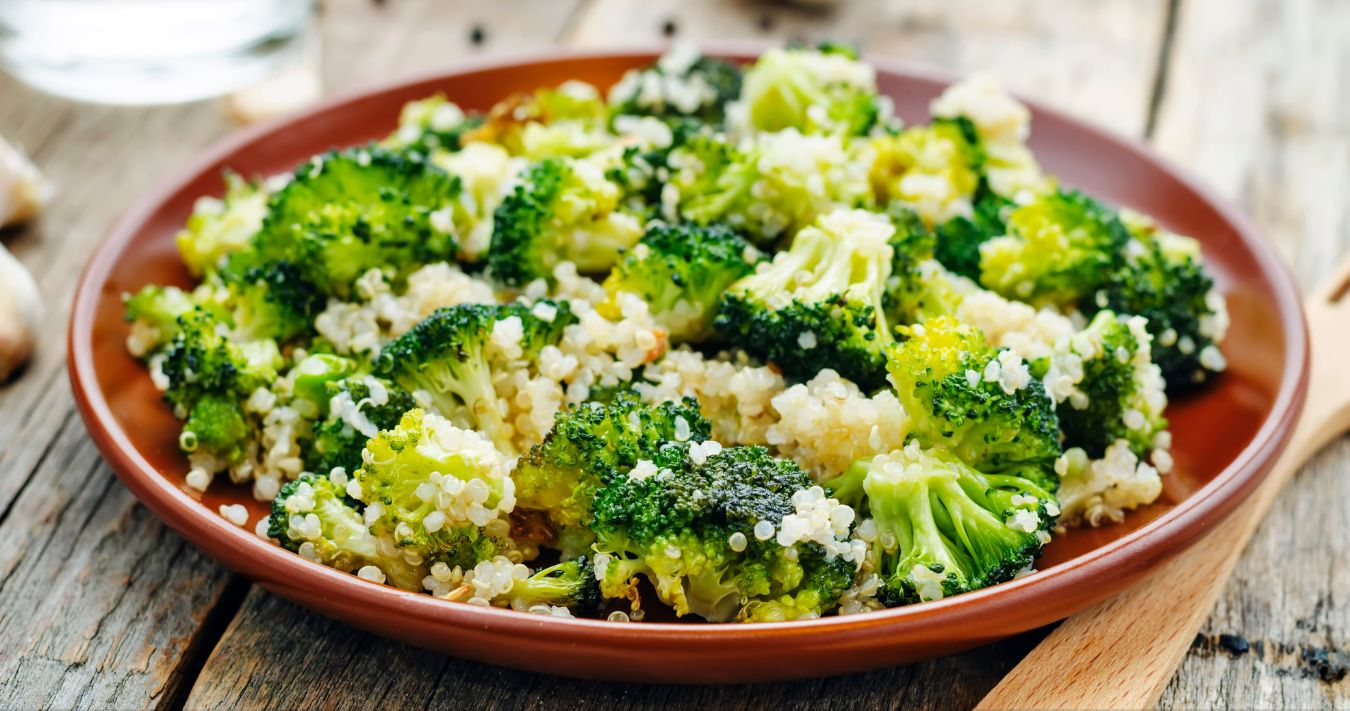Best Foods for Fighting Cancer
If you want to improve your health, you should look at your diet – what you eat significantly impacts your health, including your risk of developing cancer.
Cruciferous Vegetables
These veggies are rich in nutrients including vitamins C, E and K, as well as folate and fiber. Additionally, they also contain a sulfur-containing compound, glucosinolates, that help with digestion. These compounds help to protect cells in your body from DNA damage, they also inactivate carcinogens and have anti-inflammatory and antibacterial properties.
Broccoli, in particular, contains high amounts of sulforaphane which has been linked to a decreased risk of developing a variety of cancers, including breast, colon and prostate cancer.
Berries
Including cranberries, blueberries, raspberries and strawberries – berries are packed with powerful antioxidants, including anthocyanins, ellagic acid and resveratrol. These compounds protect your cells from free radical damage, decrease inflammation and inhibit cancer cell growth. Research has shown that regularly eating berries decreases your risk of developing a variety of cancers including breast, colon and esophageal cancer.
Dark, Leafy Green Vegetables
Including spinach and kale – dark, leafy green veggies are packed with carotenoids, which help to protect your cells from free radical damage. They also contain folate and fiber, which are both needed for maintaining healthy DNA. Research has shown that regularly eating dark, leafy green vegetables decreases your risk of developing a variety of cancers, including mouth, larynx, pharynx, esophageal and stomach cancer.
Citrus Fruits
Including grapefruit and oranges – citrus fruits are rich in vitamin C, flavonoids and phytochemicals, which have been shown to inhibit not only the growth, but also the spread, of cancer cells. The antioxidants in citrus fruits help to protect your cells from free radical damage, decrease inflammation and also boost your immune system. Research has shown that regularly eating citrus fruits decreases your risk of developing several cancers including skin, respiratory and digestive cancer.
Beans, Peas and Lentils
These foods are packed with fiber, protein and bioactive compounds. Further, they’re rich in antioxidants and phytochemicals including phenolic acids and flavonoids, that help to protect your cells from damage and decrease inflammation. In particular, the fiber in these foods helps to support a healthy digestive system and also promotes the growth of healthy gut bacteria, which helps to decrease your risk of colorectal cancer.
Nuts
Including walnuts – nuts are packed with antioxidants, fiber, healthy fats and bioactive compounds. In particular, walnuts, have ellagitannins, melatonin and gamma-tocopherol that help to reduce oxidative stress, inflammation and gene expression. Research has shown that regularly eating nuts, including walnuts, can inhibit cancer cell growth, and help to reduce your risk of developing cancer.
Whole Grains
Including whole wheat, brown rice and quinoa – whole grains are packed with fiber, which helps to support a healthy digestive system. Further, whole grains are rich in antioxidants and phytochemicals that help to protect your cells from damage and decrease inflammation. Research has shown that regularly eating whole grains helps to prevent your risk of developing colorectal cancer.
Your Plate of Food
One of the most important things to remember is to include a variety of fruits, veggies, whole grains, beans and lean proteins in your diet. According to The American Institute for Cancer Research, your plate at each meal should be balanced with at least two-thirds plant-based foods and one-third or less of animal protein.
Nutritious & Strong
Adding some of these cancer-fighting foods into your diet is a simple step you can take to improve your overall health and well-being, while also reducing your risk of developing cancer. By choosing a variety of fruits, veggies, whole grains, beans and lean proteins, you provide your body with the nutrition it needs to help fight off disease.
However, it’s important to remember that diet is only one factor – combining a healthy diet with regular exercise and quality sleep, along with managing your stress and any chronic diseases, gives you the best chance at living a healthy, cancer-free life.
If you have IBS, these are some foods you should avoid.

